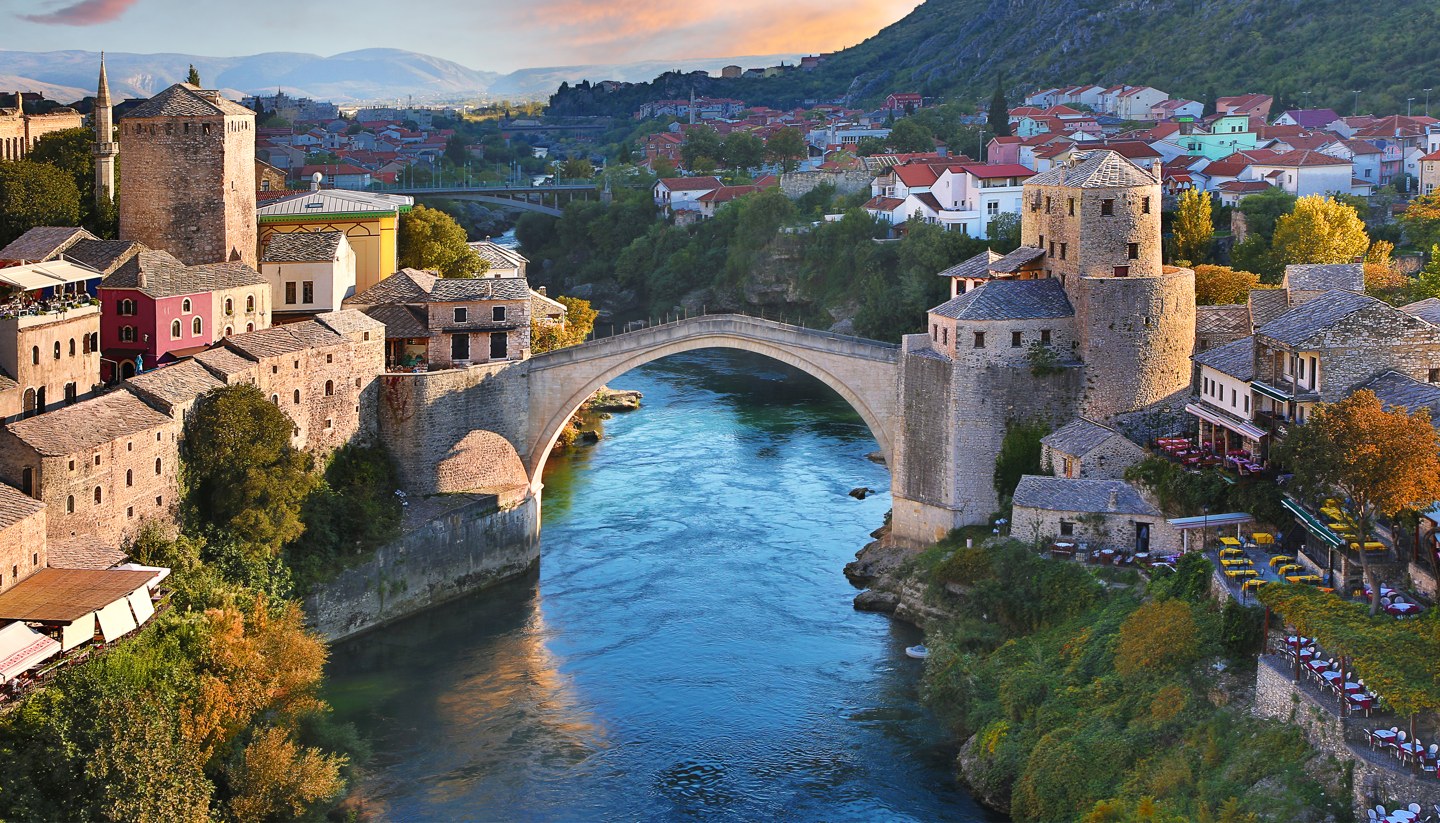Bosnia and Herzegovina History, Language and Culture
History of Bosnia and Herzegovina
Once part of the Roman province of Dalmatia, Bosnia transitioned through Gothic and Byzantine rule before emerging as an independent state in 1180. Under strong rulers, it expanded southwards to include Hum (modern-day Herzegovina) until the Ottomans took control in 1463. Ottoman rule shaped Bosnia profoundly, with much of the population converting to Islam and the region serving as a defensive frontier against European incursions, leading to repeated invasions and unrest.
By the late 19th century, Ottoman power waned, and Bosnia was assigned to the Austro-Hungarian Empire after the Russo-Turkish War of 1876. Austria's full annexation in 1908 triggered tensions that culminated in the assassination of Archduke Franz Ferdinand in Sarajevo in 1914, a key event sparking World War I. After the War, Bosnia was incorporated into the Kingdom of Serbs, Croats, and Slovenes (renamed Yugoslavia in 1929).
During the Communist era (1945–1990), Bosnia became a constituent republic of Yugoslavia, with ethnic tensions suppressed under Tito's regime. However, with Yugoslavia's collapse in the 1990s, Bosnia became a battleground marked by ethnic conflict and atrocities, including ethnic cleansing, until NATO intervened. The Dayton Agreement in 1995 brought peace, though Bosnia remains politically divided and economically fragile.
Did you know?
• The Siege of Sarajevo (1992–1996) lasted nearly four years, making it the longest siege of a capital city in modern history - outlasting even the Siege of Leningrad during World War II.
• Sarajevo hosted the 1984 Winter Olympics, a proud moment for the city, but much of the infrastructure, including ski runs and bobsled tracks, was destroyed or used as target practice during the Bosnian War in the 1990s.
• The 2014 FIFA World Cup marked Bosnia and Herzegovina's debut in a major international football tournament, a historic achievement for the nation.
Bosnia and Herzegovina Culture
Religion in Bosnia and Herzegovina
50.7% Muslim, 30.7% Eastern Orthodox Christians, 15.2% Roman Catholics, 3.4% Others.
Social Conventions in Bosnia and Herzegovina
Bosnia and Herzegovina is characterised by its ethnic and religious diversity, and visitors should respect the customs and traditions of its various communities. The main ethnic groups are Bosniaks (48%, primarily Muslims), Serbs (37.1%, predominantly Eastern Orthodox Christians), and Croats (14.3%, mostly Roman Catholics). While alcohol consumption is generally accepted, drinking in public spaces may be considered offensive by more observant Muslims. Visitors should avoid discussing sensitive topics such as the Bosnian War or political and ethnic divisions to maintain cultural sensitivity and respect.
Language in Bosnia and Herzegovina
The official languages of Bosnia and Herzegovina are Bosnian, Serbian, and Croatian. While all three languages are mutually intelligible, they are associated with the country's three main ethnic groups. Bosniaks and Croats predominantly use the Latin alphabet, whereas Serbs primarily use the Cyrillic alphabet. However, the Latin alphabet is also widely understood and used by the Serb population, especially in mixed or urban areas.


